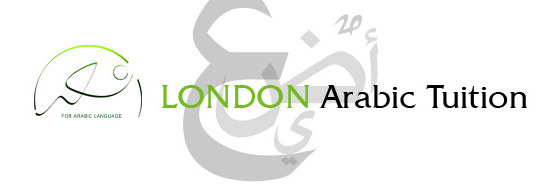If you want to set yourself or your children apart from the career crowd now, or in the near future, you might like to consider enlisting in an Arabic Language course, either via mainstream education or a private school such as London Arabic Language Tuition which offers Arabic Language Classes in London or Arabic Language lessons via its online materials. But why invest the time and finances to do so?
It opens up a whole new world. A world of scientific history and discovery, of poetry and novels by literary greats. It’s a gateway to understanding an ancient people, a way of communicating with them, not as a tourist might but as a traveller who wants to enter and understand their world.
If you want to communicate with Arabs, then colloquial Arabic is the language of choice. Arabs use colloquial language in all their daily communications, but when they encounter a situation calling for greater formality, Modern Standard Arabic is used.
The language of a thousand and one nights:
Arabists have described learning Arabic as magical. It’s the language of a thousand and one nights and one of the most ancient world languages. Sometimes learning Arabic can feel like learning code breaking. As the basis of the language lies in verbs being split into a 3 letter root. Most words are derived from a three-letter (trilateral) root. And each trilateral Arabic root can theoretically be transformed into one of fifteen possible verb forms. The first 10 (apart from verb form 9) are the ones used. When you learn the verb forms you can for example begin to decipher a sentence that on the first reading may have made not sense at all to you.
The further fascination in Arabic language learning lies in the alphabet being completely different to ours. You write from right to left. There are twenty eight letters in the alphabet, but because the script of the alphabet is cursive, 22 of the letters take different shapes when they are in initial, medial, final, or isolated positions. There are six letters in the alphabet which have only two possible forms because you only connect to them; they cannot be connected from. The three long vowels are represented within the alphabet. However, the three short vowels are not. Short vowels can be indicated by optional diacritical markings, but these are often not written. A learner of Arabic will however write the short vowels as the position of the short vowels can completely change the meaning of a word.
There are over 400 million Arabic speakers across the world and the British Council, together with the Qatar Foundation and Greater London Authority in the UK is on a mission to increase that number. Arabic language lessons are ranked as the second most important to take in the UK. Apart from Spanish, are considered a more desirable language to learn than all of the European languages, for that matter any other language.
Tony Calderbank who heads up the British Council’s drive to promote Arabic as a subject and an accomplished Arabic scholar himself thinks that British citizens should be learning Arabic as it opens up endless possibilities for those who embark on it. “Those who learn Arabic will move beyond the shallow media stereotypes to a fuller more authentic awareness of the Arab world.”
The British Council wants to promote Arabic language as a key language to learn in British School. A considerable investment has been made to encourage British primary schools amongst other learning institutions to teach Arabic. 5000 promotional packs have been sent to British primary schools to encourage them to include Arabic as part of the curriculum.
Currently a 1000 primary school pupils study Arabic as part of the curriculum across the UK while a further 500 are learning the subject after school and in their schools breaks. All of these numbers are set to grow manifold if the British Council’s drive to promote Arabic Language has the desired results.
On a practical level, Tony Calderbank would like to highlight that Arabic could increase people’s job prospects for example it opens up areas in media, communications, finance, banking, oil and gas, the diplomatic service and security forces.
If the British Council have their way Arabic will be more readily available across primary and secondary schools as well as at Universities. It will become part of the wider curriculum. Whilst, this is great news for pupils of school and university age, its sometimes difficult to find a really good private school if you are not part of these systems. Nassra Arabic Tuition offers Arabic language lessons face to face in London or online worldwide via its sophisticated linguistic materials.
What distinguishes them is that they offer spoken Arabic lessons in London as well as Modern Standard Arabic. It’s critical to learn spoken Arabic, as the language has regional variations. So if you want to learn the language to communicate, rather than just study the language of official documents, speeches and the media then its critical to learn spoken Arabic. Once you’ve decided on spoken Arabic, either as a supplement to a university course, or a standalone exercise, you’ll need to decide which regional variation you’d like to learn.
London Arabic Tuition would recommend which ever of the spoken versions might be most useful to you given the reason why you are learning. If you are due to be posted to Abu Dhabi on business we would suggest Gulf Arabic, if you were being posted to work in Iraq, we’d suggest the Arabic appropriate for that region. Learning Arabic will set you apart from your other European colleagues based in the Middle East, as despite the real need to do so, few working adults take the trouble to do so. However, by just taking a few hours every week to learn Arabic before a posting, you’ll understand what is being said amongst Arabs in the boardroom and be able to participate in their lives outside work.
If you would like to do something to set either yourself or child apart from the crowd and do something which is both really fascinating and useful why not try an Arabic Language course? We can teach you in your own office space or come to your home if you are based in London, maybe you would like to learn Arabic with your children, or alternatively we could arrange to teach you online if more convenient.
We love to talk about our language. So, if you’d like to talk to us about learning Arabic and why you should choose it as a key communications vehicle for yourself and/or your child we’d be delighted to have a chat. If you choose another school, or its just to ask us whether your child should study Arabic at their local primary school, we’d still love to talk to you.
Learn to Speak Arabic with London Arabic Tuition. We can tailor make the tuition to suit your needs or you can join one of our popular courses.



Leave a Reply
You must be logged in to post a comment.